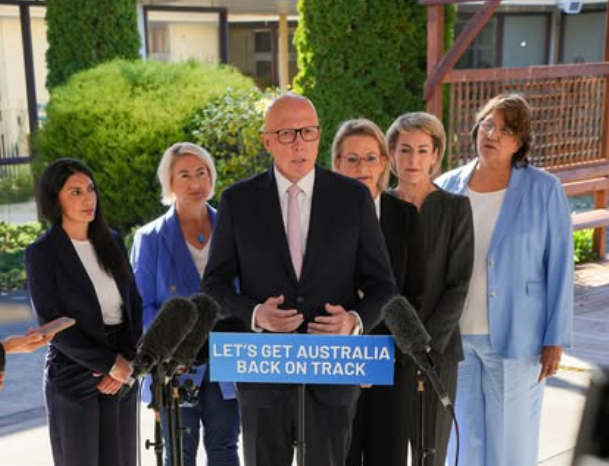Peter Dutton’s admission that “we made a mistake” has significantly changed the Coalition’s stance on flexible work. The initial plan, which called for eliminating work-from-home opportunities and eliminating 41,000 public service positions, was widely criticized, especially for its effects on women and families who were balancing caregiving and professional obligations. Although the goal of the policy was to reduce spending, voters’ trust in the government as they dealt with post-pandemic realities was in danger of being severely damaged.
Peter Dutton: Personal and Political Bio
| Attribute | Details |
|---|---|
| Full Name | Peter Craig Dutton |
| Date of Birth | November 18, 1970 |
| Place of Birth | Brisbane, Queensland, Australia |
| Political Party | Liberal Party of Australia |
| Position | Leader of the Opposition; MP for Dickson since 2001 |
| Previous Roles | Minister for Defence, Home Affairs, and Health |
| Recent Policy Update | Reversal on plan to end remote work and cut public service roles |
| Public Response | Mixed—praised for adapting, criticized for initial proposal’s short-sightedness |
| Official Website | www.peterdutton.com.au , Insstagram |
Backlash Compels a Reexamination of Equity and Efficiency
Dutton admitted the error at a recent press conference, saying the plan had unwittingly alienated public employees and failed to take into account changing workplace standards. Although the Coalition initially presented it as a Canberra-specific project, detractors pointed out that it could undermine work-life balance and gender equality across the country. The Coalition now supports flexible working arrangements, according to Shadow Finance Minister Jane Hume, who added that “we have listened, and we understand.”
Reframed Public Service Cuts: Not Forgotten
The plan to cut 41,000 public servants was first presented as a way to save money, but it will now be reorganized to use natural attrition and hiring freezes. Dutton acknowledged that “we got the policy wrong in that regard,” which contradicted Hume’s assertion that forced redundancies were never part of the plan. In addition to creating more confusion, the contradiction signaled a moment of political openness.
Leading the Way in Gender Equity and Workplace Flexibility
The proposal’s effect on women was the subject of the most intense criticism. The importance of flexibility for caregivers, many of whom are women, was emphasized by labor and independent voices. Dutton had previously used job-sharing as justification for the plan, but pressure grew over time. “I want to make sure that women have more choices in their lives and their work careers,” he changed his mind by March. Despite being reactive, this change indicates a change in the way leadership is reacting to gender-informed policymaking.
A Worldwide Discussion with Local Implications
Australia is not the only country dealing with the challenges of working remotely. While corporate behemoths like Amazon and U.S. policies under the Trump administration sought to compel federal employees to return to their jobs, the Australian electorate has notably resisted. Voters’ top concerns, according to surveys, are work-life balance and the strains of the cost of living. Dutton’s reversal acknowledges that in a society that now values autonomy and hybrid models, strict policies are remarkably ineffective.
The Wider View: Transitional Leadership
Dutton has put himself in an unanticipatedly reflective position by abandoning such a headline policy. In addition to displaying political survival instincts, his reversal shows that he recognizes Australia’s changed workplace culture. It is unclear if this change in direction will result in votes, but it does represent an acknowledgment that effective governance calls for empathy in addition to efficiency.


